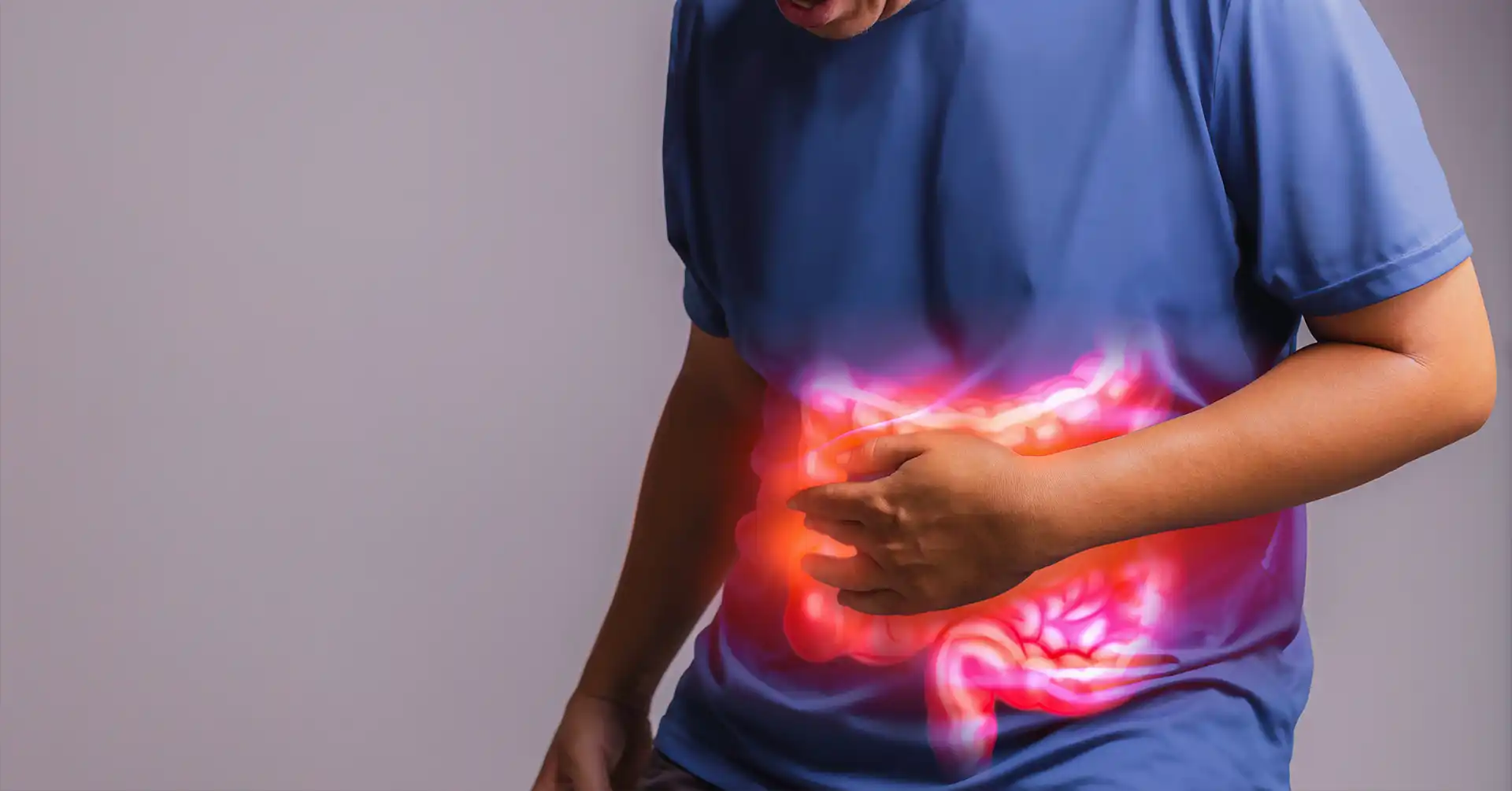A friend or family member with stomach discomfort, bloating, or changed restroom habits may have IBS. Many individuals worldwide suffer from Irritable Bowel Syndrome. Unpredictable diarrhoea and constipation cause pain. The causes are unknown, although stress, food, and gut microbes may contribute.
Managing IBS requires smart eating, stress reduction, and occasionally medication. IBS, its symptoms, causes, and treatments are covered in this guide.
What Is IBS?
Millions of people worldwide suffer from irritable bowel syndrome (IBS). IBS is unpredictable, causing diarrhoea, constipation, or both. While the specific causes of IBS are unknown, stress, nutrition, and gut microbiota may worsen symptoms.
Dietary changes, stress reduction, and medication are usually prescribed to the patient. Continuous care and assistance are needed for IBS, which may lower the quality of life.
Irritable Bowel Syndrome: Common Symptoms
Since IBS has many symptoms that vary by individual, it may reduce a person’s quality of life. These disorders might include bloating, gas, diarrhoea, and constipation. Signs include abdominal cramping, bloating, and constipation. These are some of the most prominent symptoms.
- Pain or Discomfort
Bowel movements may relieve moderate to severe irritable bowel syndrome (IBS) and stomach pain. It affects both sexes equally, making IBS unique. Depending on the person, this illness might produce mild pain or severe cramps.
- Bloating and Distension
Bloating, produced by gas accumulation in the digestive system, is a common symptom of IBS. Other disorders like IBS might cause bloating. It may feel like suffocating and be quite painful.
- Changes in Bowel Habits
Changes in Bowel Habits IBS patients may have diarrhoea, constipation, or a confusion reversal. Changes in bowel habits may be annoying and difficult to predict.
- Diarrhea or Constipation
IBS may cause diarrhoea and constipation. This varies by person. IBS may be constipation- or diarrhoea-type, depending on stool frequency and consistency. More severe bowel habits, including constipation and diarrhoea, might affect daily life.
- Urgency to Have a Bowel Movement
The frequent urge to use the toilet is a common and annoying symptom of irritable bowel syndrome. This illness makes it hard to organize a day without thinking about bathroom breaks. This illness impairs sleep. Immediacy may cause stress and anxiety.
Causes of Irritable Bowel Syndrome
Irritable bowel syndrome (IBS) is notoriously hard to diagnose and treat since its cause is unknown. Many factors may induce or worsen IBS symptoms, needing further examination. Many variables, including those below, may cause irritable bowel syndrome.
- Gut Motility Issues
Poor stomach muscle contractions often cause IBS. This motility alteration may impede transit, induce constipation or speed contractions, and cause diarrhoea. Both possibilities may unnerve the patient. These contractions must be timed appropriately to maintain bowel function.
- Gastrointestinal Infections
A family history of gastrointestinal issues like food poisoning may increase the risk of irritable bowel syndrome. If these diseases impair intestinal function, symptoms may stay forever.
- Microbiome Imbalance
Changes in the gut microbiome, which contains billions of species, have been related to IBS. Gut flora imbalances may cause some symptoms. An excess of harmful bacteria and a lack of protecting microorganisms might worsen IBS symptoms. Any treatment plan should prioritize microbiome balance.
- Food Sensitivities
Certain foods increase symptoms in some individuals. Dairy, high-fat, and artificially sweetened foods are prominent triggers. Identifying and avoiding these sources helps cure symptoms. If you want the greatest therapy, you must know how diet affects your symptoms.
- Psychological Factors
Mental health disorders, including anxiety and sadness, might affect IBS symptoms. It’s well known that the brain and digestive system are related. IBS sufferers may experience digestive issues from emotional stress. Psychological management and support are always part of the treatment plan for irritable bowel syndrome (IBS).
Diagnosis and Seeking Professional Guidance
IBS is diagnosed by assessing the patient’s symptoms, medical history, and sometimes further testing. This eliminates other stomach discomfort sources. A competent medical practitioner should help establish an effective and personalized treatment strategy.
The diagnostic process may include blood, stool, and imaging scans to rule out inflammatory bowel disease (IBD) or celiac disease. Patients must undergo these procedures to diagnose celiac disease.
The Rome criteria, which use symptom profiles to diagnose IBS, may also be evaluated. We created the Rome criterion in 2000. A rigorous diagnostic procedure is needed to rule out other disorders and provide patient-specific treatment.
Effective Treatments for Irritable Bowel Syndrome
There is no cure for irritable bowel syndrome (IBS), but certain therapies may help people manage their disease and reduce symptoms. The patient’s symptoms and medical history must be considered while tailoring treatment.
- Dietary changes
A food journal might assist a patient in identifying items to avoid and those that may worsen symptoms. Migraines are often caused by hot, fatty, and artificially sweetened meals. If a person eliminates or eats less of a food or food category, their symptoms may improve.
- High-fiber diets increase intestinal regularity
Oats, legumes, and fruits contain soluble fiber, which may regulate bowel movements. The insoluble fiber in whole grains and vegetables may reduce diarrhea by bulking up stools. Since entire grains and vegetables include insoluble fiber, this may be true. A diet rich in fiber and other nutrients may help manage irritable bowel syndrome (IBS).
Medications
- Dicyclomine and hyoscyamine have been researched for stomach muscular spasm relief. These medications treat digestive disorders, including irritable bowel syndrome (IBS).
- Some probiotics may help reestablish a healthy digestive tract microbiome when administered with medical care. Symptom intensity may decrease. Probiotics may help maintain a healthy digestive system naturally.
- Loperamide may assist IBS patients with diarrhea who have fewer, milder bouts. Laxatives and medicines like lubiprostone may soften stools and induce regular bowel movements in IBS patients with constipation. IBS medication may be adjusted to the patient’s symptoms.
- Stress management strategies like yoga and meditation may help alleviate irritable bowel syndrome. Stress may cause symptoms to appear or worsen. Relaxation techniques may decrease stress and alleviate discomfort. A successful irritable bowel syndrome therapy must incorporate stress management.
- Regular exercise improves bowel function, reduces stress, and extends life. Regular exercise improves health, including bowel movements. Spend at least 30 minutes a day exercising at moderate intensity most days. In addition to physical benefits, regular exercise improves mental wellness.
- Maintaining a consistent sleep cycle helps regulate the body’s internal clock, reducing IBS symptoms. For physical and mental restoration, sleep seven to eight hours every night.
- Cognitive behavioral therapy (CBT) may assist IBS sufferers and their stress and anxiety. CBT works because it targets psychological disorders. IBS patients with stress and anxiety may benefit from CBT. This therapy teaches patients how to relax and reduce tension. Irritable Bowel Syndrome (IBS) behavioral therapy may help with psychological and social issues.
Here is some Alternative Therapy:
- Hydration and FODMAP Diet
Irritable Bowel Syndrome (IBS) sufferers, particularly those with diarrhea, should drink adequate water daily. Hydration helps maintain health and reduces IBS symptoms. The low-FODMAP diet, which reduces fermentable carbs, may also help.
Low-FODMAP diets limit fermentable oligo-, di-, mono-, and phosphate-containing carbohydrates. FODMAP-rich foods worsen IBS symptoms. Despite not being advised by a doctor, a low-FODMAP diet may reduce symptoms by removing common dietary allergies. This must be done under medical supervision.
- Acupuncture
Some Irritable Bowel Syndrome (IBS) patients claim relief following acupuncture. This tried-and-true treatment inserts very tiny needles just under the skin at various spots on the body to boost the body’s natural healing.
Acupuncture may relieve stomach pain and improve digestive function, but further research is required. This thorough and customized approach to Irritable Bowel Syndrome (IBS) may interest those interested in alternative therapies.
- Peer-based education and emotional support
Sharing facts and anecdotes to enable IBS patients to make their own choices is crucial. If you need emotional support and information on Irritable Bowel Syndrome, join a support group and learn more.
Learn about your disease and connect with others in support groups to gain both. Online communities provide a sense of belonging by connecting users with others going through similar problems.
Those who know about the condition may make informed decisions about their daily routine, diet, and medical treatment.
Conclusion
Stress reduction, food changes, and other lifestyle changes may help treat Irritable Bowel Syndrome. All of these are necessary for IBS therapy. Understanding symptoms, causes, and treatment options helps patients manage their disease and improve their well-being.
This is especially true for chronic diseases. To get the greatest results, collaborate with healthcare professionals to establish a personalized plan. This will make life more enjoyable and balanced despite IBS.
Irritable Bowel Syndrome (IBS) sufferers may regain digestive health with the right counsel and procedures. IBS treatment and quality of life improvement need a range of therapy treatments and social support networks.
Read More:
How To Stop Stomach Growling : Tips to Follow
Colon Cleanses: Harmful or Beneficial to Gut Health?
Red Light Therapy: A Path to Inner Peace!






